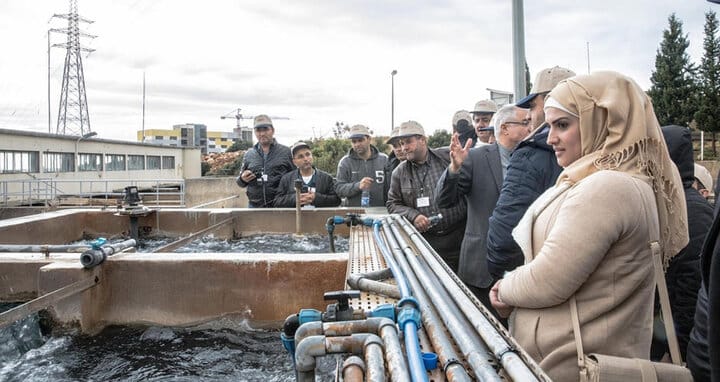What are Tel Aviv’s goals for launching a water war against Lebanon and Arab countries?
: The hostile actions of the Zionist regime against Lebanon continued in 1402 and in the last one year, in addition to direct terrorist and anti-security threats, this regime has also harmed Lebanon in the field of water security. Authorities in Beirut have said that over the past year, dozens of border towns and villages in southern Lebanon have been suffering from severe water shortages. Because the Israeli army has destroyed most of the infrastructure and drinking water supply and purification facilities. In the fall of 1402, the project of Cheshme Wazani water pumping station, the largest water pumping station in southern Lebanon, was destroyed due to Lebanese air attacks. The right to pump water from the Hasbani River has been one of the most important disputes between Lebanon and Israel since 2002.
Ahmad Al-Mohammed, one of the Lebanese local officials, announced that the Israeli attacks damaged the electrical equipment, pumps, and distribution networks of the water project and led to the stoppage of water pumping to numerous villages and towns in the border area. The regime has not even allowed the technical workers to go to the region to repair the facilities and has prevented the reconstruction of the facilities with rain cannons.
Also, Ali Al-Zein, the former head of the Jebel Amal Federation of Municipalities, who once supervised the construction of the irrigation project until its opening, announced that this project pumped about 12,000 cubic meters of water daily and supplied water to 70 villages and cities, but now and following Destruction of the mentioned facilities has practically created a severe drinking water crisis on the borderline. Meanwhile, dangerous military conditions prevent southern residents from accessing the river and springs.
The air and artillery attacks of the Zionist regime on the Lebanese border caused a shortage of drinking water, and the residents of the border, by collecting rainwater and drawing it through plastic pipes from the roofs of their houses, provided their water in a limited and difficult way. In other areas, Lebanese villagers have resorted to digging wells, which endangers their health. According to the data of the Ministry of Interior of Lebanon, the population of the southern border region of Lebanon is approximately 13,3600 people, who are scattered in 83 cities and villages, and now at least half of this population is having problems with drinking water supply.
Israel’s blue threat against Jordan
It is not only Lebanon that faces Israel’s brutal and inhuman actions in the field of water security. Jordan also has such a situation. In 1402, Jordan faced the problem of water shortage many times due to Israel’s insidious actions. And that is in a situation where the average daily consumption of water in Jordan is only 70 liters and the average standard of the World Health Organization (WHO) is nearly 150 liters. Since the signing of the peace agreement between Jordan and Israel in 1994, the Zionist regime has committed to provide between 25 and 50 million cubic meters of water to Jordan every year, but it has repeatedly violated this commitment and put Jordan in a difficult situation. The issue of water is now at the center of geopolitical tensions between Israel and Jordanian Foreign Minister Ayman Safadi has announced that he cannot sit next to a Zionist minister and sign a water and electricity agreement when Israel continues to kill the people of Gaza.

